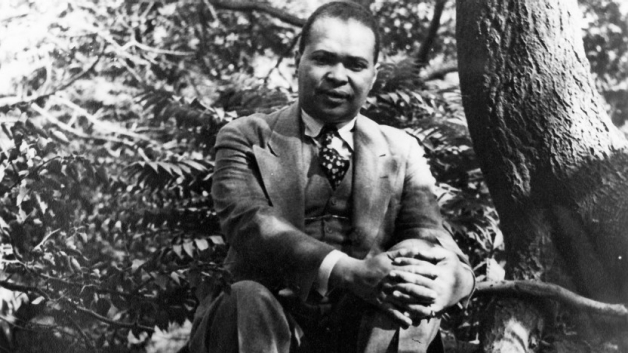
Countee Cullen (pictured), a poet who rose to fame during the Harlem Renaissance, was a contemporary of famed writer Zora Neale Hurston. Cullen amassed an impressive body of work in a short period of time, moving to becoming a teacher for the latter part of his career. Cullen died on this day in New York in 1946 at the young age of 42.
SEE ALSO: Celebrated Writer Zora Neale Hurston Was Born Today In 1891
The details of Cullen’s early life are murky, with many scholars agreeing he was born around May 30, 1903. His place of birth has also been a mystery, with claims that he was either born in Lexington, Ky.; New York; or Baltimore, Md. It appears, however, that Cullen claimed New York as his place of birth, which is where he also found his footing as a writer and poet.
As a teenager, Cullen came under the care of Reverend Frederick A. Cullen, the pastor of Salem Methodist Episcopal Church; Rev. Cullen would later lead the Harlem chapter of the NAACP. Influenced by the happenings around him, Cullen excelled in high school and entered in to New York University after graduating in 1922.
Honing his writing and speaking abilities in high school, Cullen found notoriety at NYU after winning the Witter Byner undergraduate poetry contest in 1923, which was sponsored by the Poetry Society of America. Coming in at second place, Cullen would continue to pen works that were published nationally in a series of poetry publications. In 1925, Cullen won the Witter Byner first place prize, the same year he eventually entered in to Harvard University.
Race formed the theme of Cullen’s first published work, “Colors,” and was released while he pursued his Master’s degree in English. The book featured two of Cullen’s most-notable poems in “Heritage” and “Incident.”
After graduating from Harvard in 1926, Cullen’s professional career began. It was a turbulent time for Cullen, who worked furiously on a series of poetry collections while editing the popular Caroling Dusk collection as well. In 1928, he received a Guggenheim to write poetry in France and then married Nina Yolande DuBois, the daughter of W. E. B. DuBois.
After 1930, Cullen’s work as a poet began to shrink and he focused instead on teaching French and English at New York’s Fredrick Douglass Junior High School. Cullen still wrote, penning his only novel, “One Way To Heaven,” which was published in 1932. Cullen wrote and translated works for the theater and also released a pair of written works for young readers.
Cullen’s last work during his life was a project he embarked upon with fellow poet and writer Arna Bontemps. Both men had a hand in the Black Renaissance, and they were working on a stage adaptation of of Bontemp’s “God Sends Sunday” novel that was slated for a March 1946 release. The play spawned the work “St. Louis Woman,” starring Pear Bailey.
Cullen did not live to see the play, dying from uremia and complications from high blood pressure. He was survived by his second wife, Ida Mae Roberson.
A year after his untimely passing, a collection of works by Cullen was released; “On These I Stand: An Anthology of the Best Poems of Countee Cullen” is still considered by poetry students as a standard introduction to Cullen’s written work.
Cullen was not as known as some of his contemporaries, but a recent uptick in interest in his work has occurred. In 2012, Charles Molesworth released the biography, “And Bid Him Sing.”
SEE ALSO: Sammy Younge Killed For Using Whites-Only Bathroom On This Day In 1966
Harlem Renaissance Poet Countee Cullen Died On This Day In 1946 was originally published on newsone.com


















